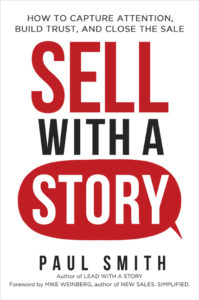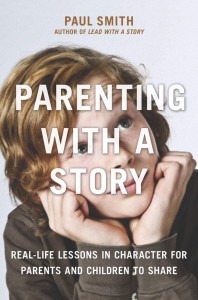Podcast (parenting-with-a-story-podcast-series): Play in new window | Download | Embed
Subscribe: RSS
In 1976, Alex Haley published his Pulitzer Prize–winning book Roots: The Saga of an American Family. The story chronicles the history of Haley’s ancestors, starting in 1767 when an African man, Kunta Kinte, was kidnapped in Gambia, brought to the United States, and sold into slavery.
A year after the book was published, it was adapted as a television mini-series that reached a record 130 million viewers. I watched the entire series from the gymnasium floor along with my entire sixth-grade class. It was brutally realistic in its depiction of life as a slave. In one particularly horrific scene, his master repeatedly whipped Kunta Kinte because he refused to accept his slave name of “Toby.”
Later that school year, our class went on a field trip. I was lucky enough—or so I thought at the time—to be placed on the one and only school bus that had a radio on board. It was quite a treat to be listening to the local rock and roll station with all my friends at nine o’clock in the morning instead of sitting in class. But after a while, it got harder to hear the music over the din of the conversation.
I tried several times to get the bus driver (an African American man in his forties) to turn up the volume. But I couldn’t get his attention. I knew if I could shout out his name, he would probably notice my request. But I didn’t know his name. So I asked the boy sitting to my right if he knew. He said with an awkward smile, “Sure. His name is Toby.”
Being the naive ten-year-old that I was, I believed him. I shouted at the top of my lungs,
Hey Toby! Turn up the radio!”
The radio snapped off immediately. The bus lurched to a stop as the driver abruptly pulled off the road. A hush fell over the cabin, and every eye turned to me with a harsh stare. Through the oversized rearview mirror at the front of the bus, I could see the driver glaring at me with a look of anger and disgust I’d never seen in my short life.
I knew immediately I’d done something terribly wrong. But I had no idea what it was. All I could come up with was that perhaps I hadn’t asked nicely enough. So with as pleasant a tone as I could muster, I asked again,
Toby . . . would you please turn up the radio?”
The driver’s glare intensified. A few muffled gasps filled the otherwise painful silence. I frantically searched the faces of my classmates for help and support, but mostly for an explanation. None of them held any answers, only the same damning and horrified expression. None of them, that is, except for one: the boy sitting immediately to my right. His face had a mischievously satisfied smile that gave me the answer I was looking for.
I knew in an instant I had been duped. The driver’s name wasn’t really Toby. A sickening feeling hit the pit of my stomach as I realized what a horrible thing I had just done. How humiliating must it have been for that driver to have a ten-year-old boy disrespect him in such a manner in front of a bus full of children? And then for that boy to unapologetically repeat the insult a second time! It was the first time in my life that I truly knew what it felt like to be ashamed.
When we arrived at our destination, I slithered off the bus without saying a word. I was too embarrassed and immature to even make eye contact with the driver, much less apologize to him. I called my mother from a pay phone and begged her to come pick me up at the end of the day so I wouldn’t have to ride the same bus back to school.
I suppose I learned three lessons that day.
First, from the unforgettable pain I saw in my bus driver’s eyes, I learned to appreciate a little of what it must have been like to be an African-American man in a small southern town in the 1970s.
Second, as a result of what I said, I learned how easy it could be to offend someone if you’re not careful.
But third, and perhaps most important, as a result of what I did not say, I learned the importance of admitting your mistakes early and apologizing for them. How much better it would have been for me (and the driver) if I’d had just the courage to say, “I’m sorry.”
As with all these stories, I encourage you to share this with your kids, and then have a discussion about it. Here are some questions to get you started:
- Why do you think the bus driver was insulted by being called “Toby”?How would the story have ended if I had simply apologized to the bus driver? Would I have slithered off the bus or needed to call my mother for a ride home?
- How would the story have ended if I had simply apologized to the bus driver? Would I have slithered off the bus or needed to call my mother for a ride home?Can you think of a situation where it would be better to not apologize for something you did wrong?
- Can you think of a situation where it would be better to not apologize for something you did wrong?
[You can find this and over 100 other character-building stories in my book, Parenting with a Story.]
—
 Paul Smith is one of the world’s leading experts on business storytelling. He’s a keynote speaker, storytelling coach, and bestselling author of the books Lead with a Story, Parenting with a Story, and Sell with a Story.
Paul Smith is one of the world’s leading experts on business storytelling. He’s a keynote speaker, storytelling coach, and bestselling author of the books Lead with a Story, Parenting with a Story, and Sell with a Story.


 Connect with him via email here.
Connect with him via email here.
Follow him on Facebook, LinkedIn, Twitter, and Instagram.
Sign up for his newsletter here to get one new story a week delivered to your inbox.


